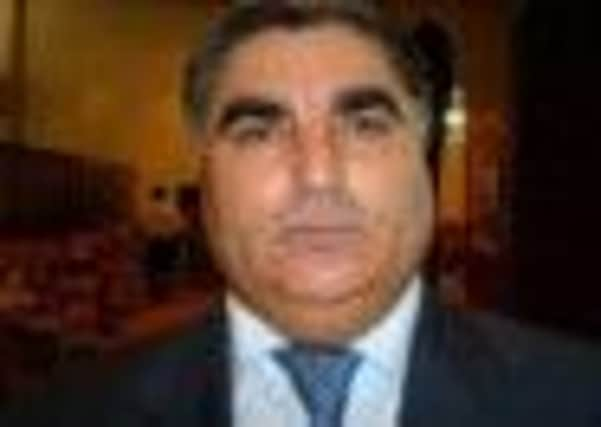Air strikes on IS militants in battle for dam


People living near Mosul Dam said the area was targeted in air strikes, though it was not clear whether they were being carried out by Iraq’s air force or the United States, which last week began aerial incursions aimed at halting the militants’ advance in northern Iraq.
The extremist group, also known as Isis, seized the dam on the Tigris on 7 August.
Advertisement
Hide AdAdvertisement
Hide AdA Yazidi politician and a Kurdish security official yesterday confirmed that IS massacred scores of Yazidi men on Friday after seizing the village of Kocho.
Both said they based their information on survivors’accounts and warned that the minority group remains in danger despite US aid drops and air strike intended to protect them.
IS fighters besieged the village for several days and gave its Yazidi residents a deadline to convert to Islam, Yazidi politician Mahma Khalil said.
“When the residents refused to do this, the massacre took place,” he said. He also said the US must do more to protect those fleeing IS fighters.
“We have been calling on the US and Iraqi government to intervene and help the innocent people, but it seems that nobody is listening,” he added.
Halgurd Hekmat, a spokesman for Kurdish security forces, said the militants took the women and children of Kocho to the nearby city of Tal Afar, which is under IS control.
Tens of thousands of Yazidis fled when IS earlier this month captured the northern Iraqi town of Sinjar, near the Syrian border. The Yazidis practise an ancient religion that Sunni Muslim radicals consider heretical.
The plight of the Yazidis, tens of thousands of whom were stranded on a desert mountaintop for days, encircled by the IS extremists, prompted the US to launch aid lifts as well as air strikes to help Kurdish fighters get them to safety.
Advertisement
Hide AdAdvertisement
Hide AdMost of the Yazidis were eventually able to escape to Iraq’s largely autonomous Kurdish region.
Some 1.5 million people have been displaced by fighting since the rapid IS advance across northern and western Iraq began in June.
The decision to launch air strikes marked the first direct US military intervention in Iraq since the last American troops withdrew in December 2011, and reflected growing international concern about the extremist group, which has carved out a self-styled Islamic state in swathes of Iraq and neighbouring Syria.
Yesterday the Ministry of Defence confirmed it had deployed a US-made spy plane over northern Iraq to monitor the humanitarian crisis and movements of IS militants.
Two British planes also landed in the Kurdish regional capital of Irbil carrying aid.
In other developments, Masoud Barzani, the leader of the Kurds, appealed to Germany, with which it has close ties, for weapons to help Kurdish fighters battling IS.
The European Union on Friday gave a green light to EU governments to supply arms and ammunition to the Kurds if they have the consent of the Baghdad government.
Germany has shied away from direct involvement in military conflicts for much of the post-war era and a survey conducted for the Bild am Sonntag newspaper indicated that almost three-quarters of Germans were against shipping weapons to the Kurds.
Advertisement
Hide AdAdvertisement
Hide AdBarzani also said foreign powers must find a way to cut off the militants’ funding. IS has stolen more than $1 billion (£600 million) from state banks in Mosul and Tikrit and is making $3m (£1.8m) a day from compulsory levies and oil theft to fund its war.